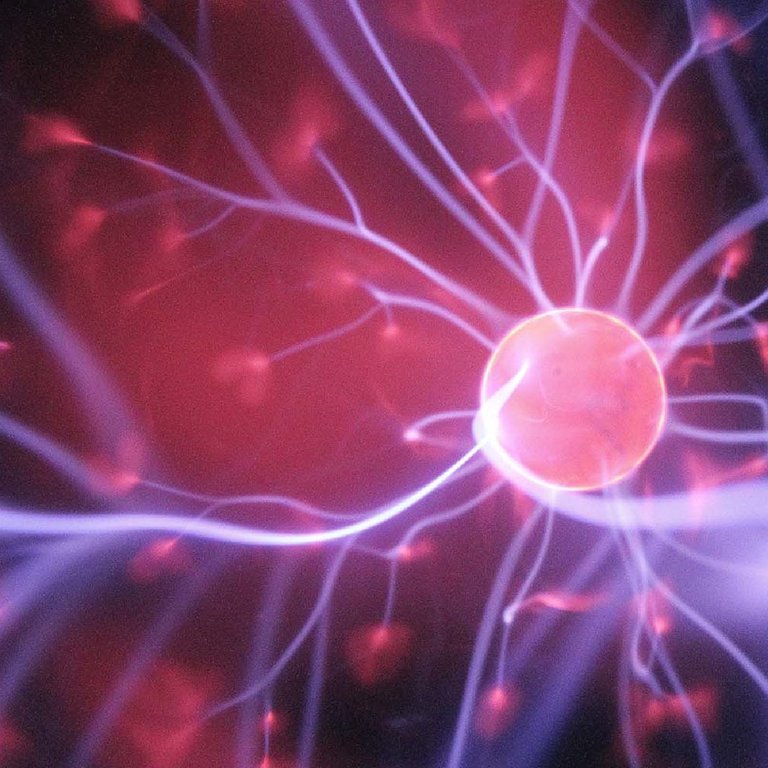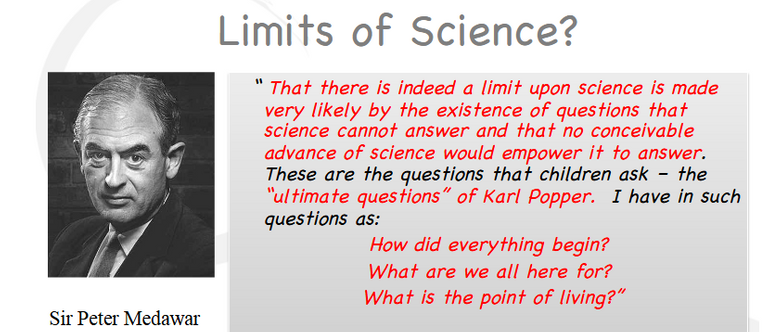Can Science Give Answer to Everything and Anything?
Hello everyone, I hope you are doing great. In recent times, I decided to go out of my scope of human anatomy and check out other science space. Talking about space, I was outside yesterday, and I looked around me. From my phone, my cloth, my apartment, the shuttle I was going to commute with and so on. I started to ask myself this question Why does it look like science has the answer to everything. Maybe I should re-quote, does science have the answers to everything?
I start to wonder that creation of a car, and the movement of that car is governed by some existing laws and theories. The Universe is governed by laws and then this laws are properly explained with the help of science. Science have been able to identify a lot of things with humans, diseases, and solve a lot of things but then has science really had answers for everything? The human brain looks very small, at least not bigger than your skull. Forget about the about 1.5 kg (3.3 lb) that is being said about the brain mass, science hasn't been able to comprehend and understand the complexity of the brain, the mind, and consciousness. If this is, then can science give an answer to everything.

https://psycatgames.com
First, what is science. I am pretty sure a lot of us will be so fast to answer this question. We can say that Science is a systematic and logical approach to discovering how things in the universe work (we can say it is the study of the natural world and how it works). This discovery is possible through the process of acquiring knowledge via observation, experimentation, and hypothesis, which would then give rise to analyzing the results, and drawing conclusions. It is the conclusions that becomes theories which after being proven true become laws. The goal of science is to be able to understand and explain our universe reliably, and to be able to meet the explanation at every time it is being tested and repeated.
It is impressive how different ideas from different scientific field align together to help to identify and prove things. But there have not been able to answer a lot of question which it doesn't have for, like questions related to purpose, which has to do with the purpose of man evolving from apes, or the purpose of the Universe after Darwin's law of evolution. While with science we have been able to discover lots of galaxies, there is no evidence to tell why the galaxies exists and since science deals with evidence, these questions can be out of the scope of science for now. Hopefully in the future, there might be an answer to that but I doubt it for now. While science isn't going to answer that for now, we have to go back to consciousness which has an evidence. There is a proof of being conscious, and there are attributes of consciousness but science has still not been able to answer these questions in full.
I saw a quote from the limits of science by Nobel Prize in Physiology or Medicine, Peter medawar
 -Extract from
-Extract from
This quote looked at the basic questions of Karl popper which are "How did everything begin?", "What are we all here for?" and "What is the point of living?”". These question actually doesn't support my definition of science as it doesn't have any based evidence to be observed. If we assume that these questions do not have base evidence, do we then say that science does not have the answer to everything? Can I say that science is still going to be able to answer the question "What is the point of living?" over time, because this question has to do with purpose. You see, science has been able to explain the purpose of non-living for instance science can explain the point for boiling water, the point for car movement, and the point for several innovations, and these have been answered with physics laws. In the last 300 years, a lot has been accomplished in the science world, so that question might have an answer soon. As a scientist, I really do want to go with the fact that those questions don't support the definition of science since there are no based evidence to be observed.
One question science might have to answer is on human evolution which has to do with what will we Homo sapiens evolve into in the nearest future, but we can still say that this question doesn't have a base, since science deal with evidence and works with observations and this has to do with something that is yet to exist. Are we going to say that at our current stage, science cannot still give answers to everything? Maybe we will say that science can answer everything but currently hasn't gotten to that stage yet. Well, some scientist might still disagree with this, as some scientist believe that science cannot and would not be able to give answers to everything.
https://ned.ipac.caltech.edu/level5/Sept06/Weinberg/Weinberg.html
https://www.npr.org/sections/13.7/2013/12/17/251639553/can-science-explain-everything
https://www.ncbi.nlm.nih.gov/books/NBK230210/
https://sciencecouncil.org/about-science/our-definition-of-science/
This is a debate in that different scientists will pick different sides but for me, I will agree that science is yet to explain everything about the universe but over time, we will get there. In reality, there are some questions that do not fall under the scope of science based on the definition and so we cannot expect science to give answers to these questions. Questions such as what will humans evolve into in the future? Science deals with observation and experiments, not predictions.
This is a beautiful post you have here I must say.
Yes, you have made valid points. I believe that overtime science will be able to give answers to so many unanswered questions. Years before now, it was relatively impossible to explain the law of gravity, also it was very difficult to understand friction and force, but currently, these things are being understood. Quantum mechanics are gradually being undertood and while we cannot predict what science would be in the next few years, there is no doubt that scientific innovations, new theories and confirmation of several theories to laws will be possible.
One thing I still strongly believe is there are some mysteries and unanswered questions that science can not answer. It is only God that can
I will not be the one to dispute whatever you say. I believe there is a place for Belief where religion falls, and a place for science. I am basically looking into science and no way religion. I just try to question our growth over the past years, scientific breakthroughs, as well as certain questions that I just feel science might have answers to in the future. I believe that if science can be able to understand consciousness to a reasonable extent just like we understand the brain, we might be able to work on longevity of life, and be able to transfer human consciousness from one body to another, as well as uploading human consciousness to machine, a project which is current ongoing.
Thanks for your contribution to the STEMsocial community. Feel free to join us on discord to get to know the rest of us!
Please consider delegating to the @stemsocial account (85% of the curation rewards are returned).
Thanks for including @stemsocial as a beneficiary, which gives you stronger support.